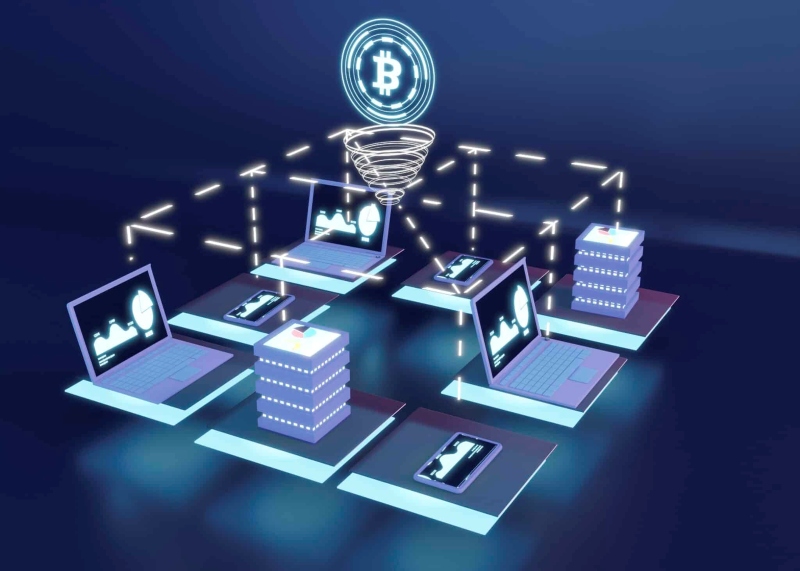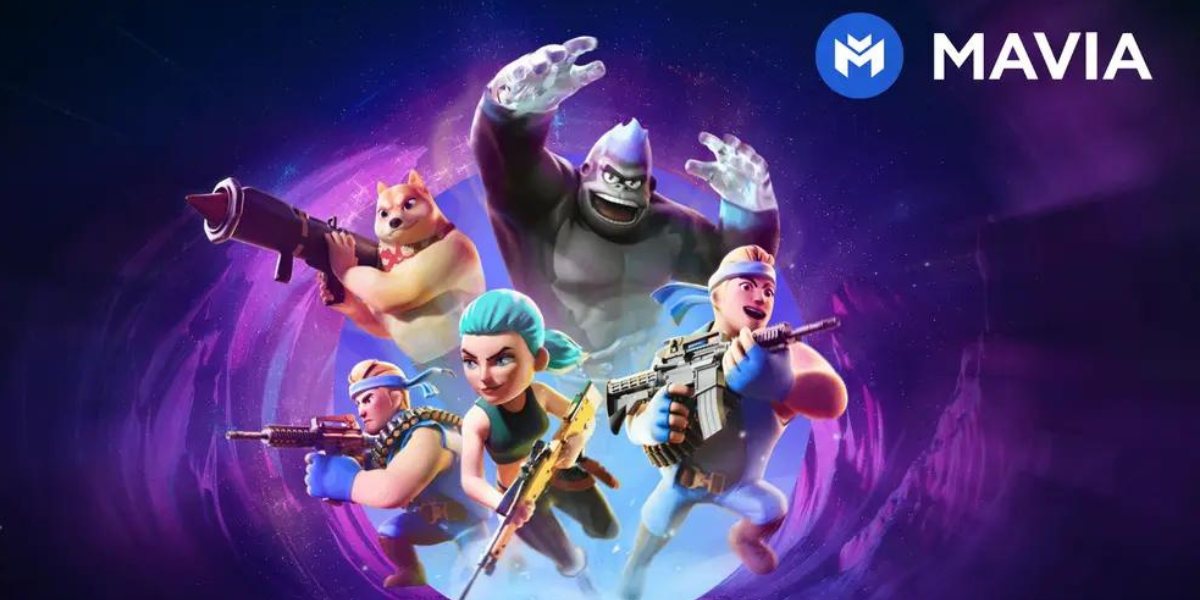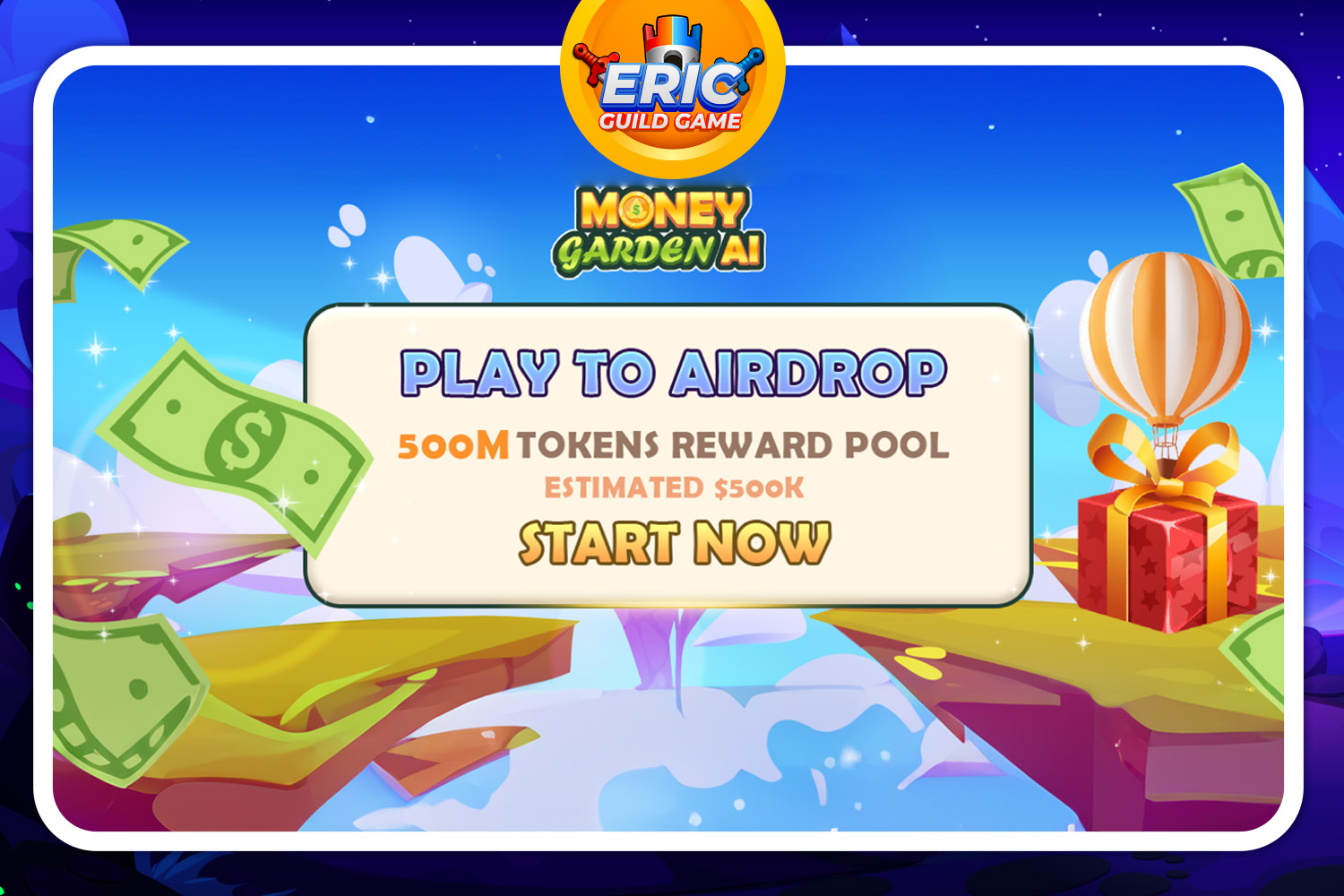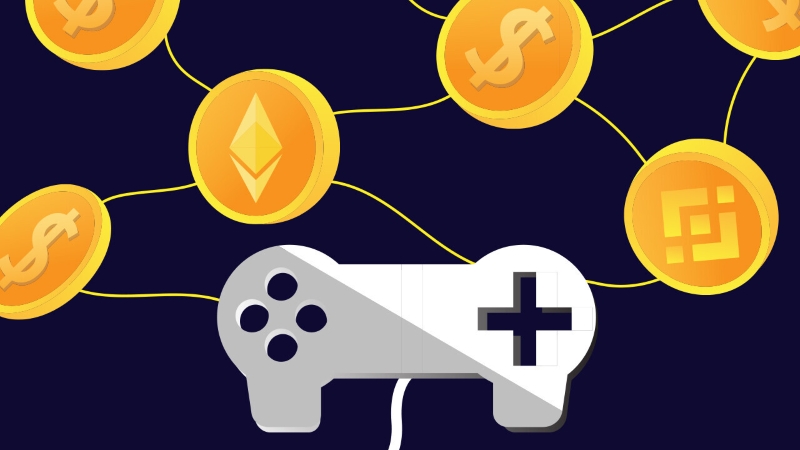NFTs in games are revolutionizing the gaming industry by providing players with true ownership of digital assets. Learn about their potential future impact.
What are nfts in games?
The gaming world is no stranger to innovation. From pixelated sprites to photorealistic worlds, the industry has constantly pushed boundaries. Now, a new technology is poised to revolutionize gaming as we know it: Non-Fungible Tokens, or NFTs.
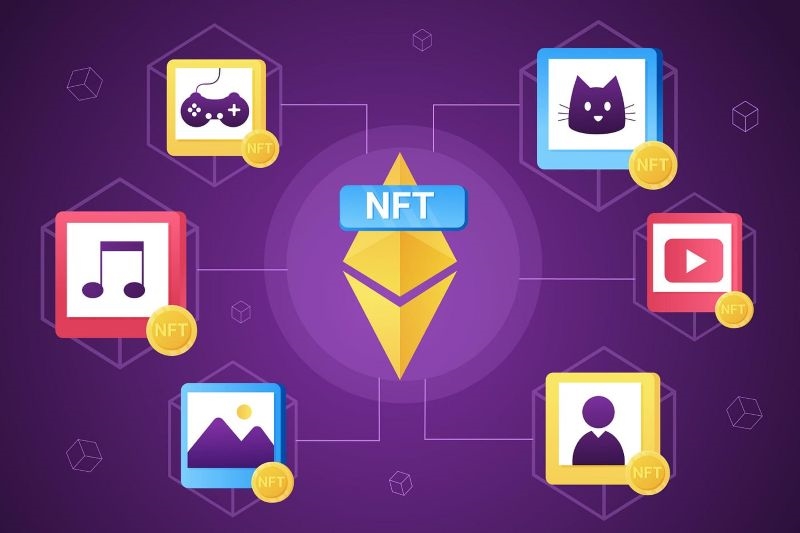
NFT in games meanings are no longer strange. It is a unique digital asset that leverages blockchain technology to grant players true ownership of in-game items. Unlike traditional games where assets are controlled by developers, NFTs empower players with the ability to trade, sell, or retain their items indefinitely, even beyond the game’s lifespan. This paradigm shift introduces digital scarcity, player autonomy, and new monetization opportunities, transforming the gaming landscape as we know it.
Staying up-to-date on the latest developments in the NFT gaming space is crucial. Following blockchain gaming news sources can provide valuable insights into new projects, market trends, and technological advancements.
How Do NFTs Work in Games?
The magic of NFTs in games explained their integration with blockchain networks, ensuring authenticity, security, and transparency. Let’s break down how they function:
Blockchain Integration
NFTs are built on blockchain technology, most commonly Ethereum, Solana, or Polygon, ensuring secure and immutable ownership records. Smart contracts, self-executing agreements stored on the blockchain, define the rules of asset ownership and automate transactions. This decentralization eliminates the reliance on game publishers, fostering a more transparent and verifiable gaming economy.
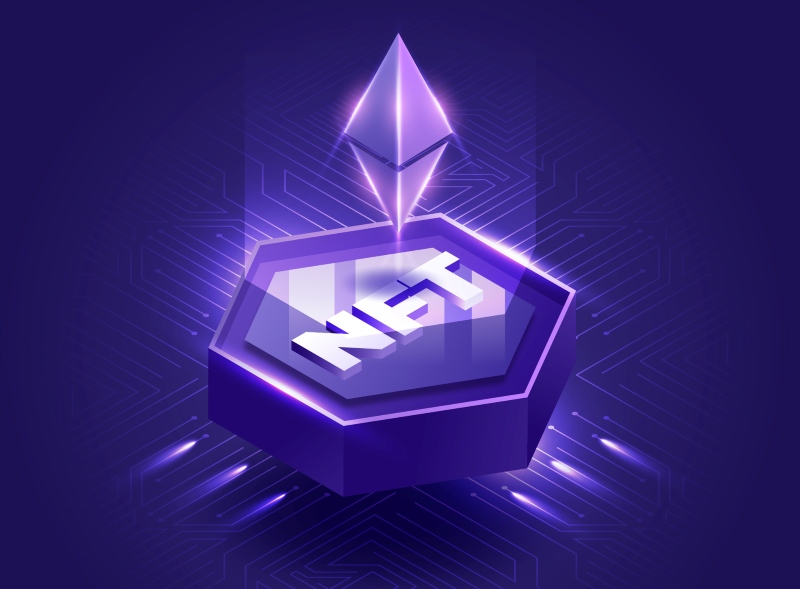
Ownership and Trading
In traditional games, if a game shuts down, players lose all their hard-earned items. NFTs solve this by giving players full control over their assets. These assets can be traded on decentralized marketplaces like OpenSea and Rarible, or even in-game NFT exchanges, promoting a player-driven economy.
Smart Contracts and Programmability
Smart contracts govern NFTs, automating transactions and ensuring key features:
- Authenticity: Eliminating duplication or fraud, guaranteeing the genuineness of each NFT.
- Provable Scarcity: Limited-edition items retain their value over the long term, creating desirability and a sense of exclusivity.
- Automated Royalties: Developers earn a percentage from each resale, providing a continuous revenue stream.
Interoperability and Cross-Game Use
The concept of NFTs being usable across multiple games is a holy grail for many developers. This interoperability would allow players to utilize their assets in different gaming ecosystems, creating a unified and interconnected gaming experience. While projects like The Sandbox and Decentraland are pioneering cross-game NFT integration, mainstream adoption is still in its early stages.
Scarcity and Uniqueness
Developers can assign rarity levels to NFTs, impacting their desirability and market value. Unlike traditional in-game items, NFTs have verifiable scarcity, making them attractive to collectors and investors.
Benefits of nfts in games
NFTs bring a plethora of benefits to the gaming industry:
True Ownership and Digital Property Rights
NFTs empower players with actual ownership of their in-game assets. This means players can retain items indefinitely or sell them as they wish, fundamentally changing the concept of digital asset ownership.
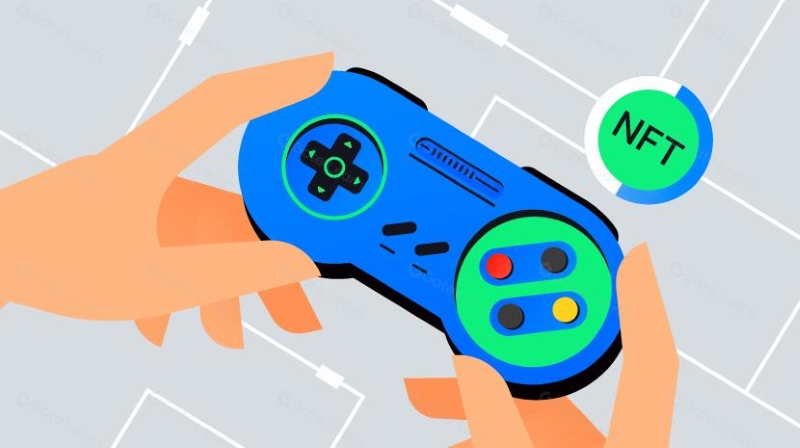
Economic opportunities: Play-to-earn (P2E) Models
Games like Axie Infinity and Illuvium have popularized play-to-earn nft games models, where players can generate income by participating in in-game economies. This benefits players by allowing them to earn real-world money, developers by generating revenue from marketplace transactions, and investors by enabling them to buy and hold valuable in-game assets.
Decentralization and Player Empowerment
NFT-based games reduce reliance on centralized game servers. If a traditional game shuts down, players lose everything. NFTs mitigate this risk by existing on decentralized networks, ensuring continued accessibility and ownership.
Enhanced Player Engagement and Customization
NFTs foster deeper player investment. They offer personalized avatars, skins, and weapons that retain value and allow for unique customization. The scarcity and interoperability of NFTs further enhance player engagement, creating a dynamic and rewarding gaming experience.
Examples of NFTs in Video Games
Several games have successfully integrated NFTs, showcasing their diverse applications:
- Axie Infinity: A pioneer in the play-to-earn model, allowing players to breed, battle, and trade NFT creatures.
- The Sandbox: A virtual world where users purchase land, assets, and create digital experiences using NFTs.
- Gods Unchained: A competitive card game where each card is an NFT, ensuring true asset ownership.
- Decentraland: A decentralized metaverse where players buy and develop virtual land as NFTs.
- Illuvium: A highly anticipated blockchain-based RPG featuring NFT-based creatures and battle mechanics.
Challenges and Concerns
While NFTs offer groundbreaking potential, they also present challenges:
- Scalability Issues and High Transaction Costs
Blockchain networks can suffer from congestion, leading to high transaction fees and slow processing times. Solutions like Layer 2 scaling and alternative blockchains are being developed to address these issues.
- Environmental Concerns
Some blockchains rely on energy-intensive models. However, the transition to more sustainable consensus mechanisms like Proof-of-Stake is mitigating this concern.
- Regulatory Uncertainty
The regulatory landscape surrounding NFTs is still evolving, posing challenges related to taxation, consumer protection, and intellectual property rights.
- Market Volatility
NFT markets are known for their price fluctuations, posing investment risks.
- Security Threats
The NFT space is susceptible to scams, hacks, and wallet vulnerabilities. Secure wallet storage, due diligence, and smart contract audits are crucial to mitigate these risks.
The Future of NFTs in Gaming: A Deep Dive Analysis
Mainstream Adoption and Integration into AAA Games
The future of NFTs in games depends largely on their acceptance by major gaming companies. While early adoption was seen in blockchain-based games like Axie Infinity, major publishers like Ubisoft and Square Enix have signaled interest in incorporating NFT technology. However, backlash from traditional gaming communities, citing concerns over monetization and potential pay-to-win mechanics, poses a challenge to widespread adoption.
- Opportunities: If AAA studios successfully integrate NFTs without harming gameplay balance, NFTs could become a standard feature in online multiplayer and open-world games.
- Challenges: Resistance from traditional gamers, unclear regulations, and the complexity of blockchain transactions could slow adoption.
The Role of Layer 2 Solutions and Blockchain Evolution
One of the major hurdles for NFT gaming is the high cost of blockchain transactions. Ethereum gas fees, for example, can make trading in-game NFTs costly. However, Layer 2 solutions like Polygon and Immutable X are addressing these issues by providing faster and cheaper alternatives.
- Opportunities: With better blockchain infrastructure, NFT-based games will become more accessible to mainstream players.
- Challenges: Ensuring compatibility between different blockchains remains a technical challenge.
Regulatory and Legal Frameworks
The legal landscape surrounding NFTs in gaming is still evolving. Governments worldwide are assessing how to regulate NFT transactions, taxation, and fraud prevention.
- Opportunities: Clearer regulations could legitimize NFTs and attract institutional investors to the gaming sector.
- Challenges: Stricter laws on digital asset trading might limit NFT accessibility in some regions.
Cross-Game and Metaverse Integration
The ultimate potential of NFTs in games lies in interoperability—allowing digital assets to be used across multiple games and virtual environments. The concept of the metaverse, championed by companies like Meta (formerly Facebook), envisions a world where NFTs seamlessly function across various digital spaces.
- Opportunities: A cross-game economy where players use the same NFTs in multiple games could revolutionize digital identity and ownership.
- Challenges: Standardization across different game engines and blockchains is a complex task.
Play-to-Earn (P2E) Model: Sustainable or a Bubble?
Play-to-earn games like Axie Infinity popularized the idea of earning real money through gaming. However, many P2E games have struggled with economic sustainability, often relying on a constant influx of new players to maintain their economies.
- Opportunities: If developers can create self-sustaining game economies, P2E could become a new standard business model.
- Challenges: Many early P2E games faced market crashes, as seen with Axie Infinity’s declining player base when rewards dropped.
Conclusion
NFTs in games are a transformative force, offering true ownership, economic opportunities, and innovative gameplay mechanics. As blockchain technology matures and adoption grows, NFTs are poised to become a staple in modern gaming ecosystems. Whether you’re a player, investor, or developer, understanding NFTs is essential to navigating this exciting digital frontier.
Ready to dive into the world of NFT gaming? Join the gaming guild, explore the latest NFT games, and stay ahead of the curve!
FAQ
1. What’s NFTs in games?
NFTs in games are blockchain-based digital assets that provide players with verifiable ownership of in-game items.
2. How do NFTs work in games?
NFTs function through smart contracts and blockchain technology, allowing players to buy, sell, and trade assets securely.
3. Are NFTs in games a good investment?
The value of NFTs varies based on demand, scarcity, and game adoption. Some offer high returns, while others may lose value over time.
4. What are some examples of NFTs in video games?
Popular NFT games include Axie Infinity, The Sandbox, Gods Unchained, Decentraland, and Illuvium.
5. Will NFTs change the gaming industry?
Yes, NFTs introduce digital ownership, new monetization models, and decentralized economies, making them a transformative force in gaming.
Remember: The world of NFTs is constantly evolving. Always do your research and stay informed about the latest developments in this exciting space.
Would you like me to expand on any specific aspect of NFTs in games or provide more examples?


